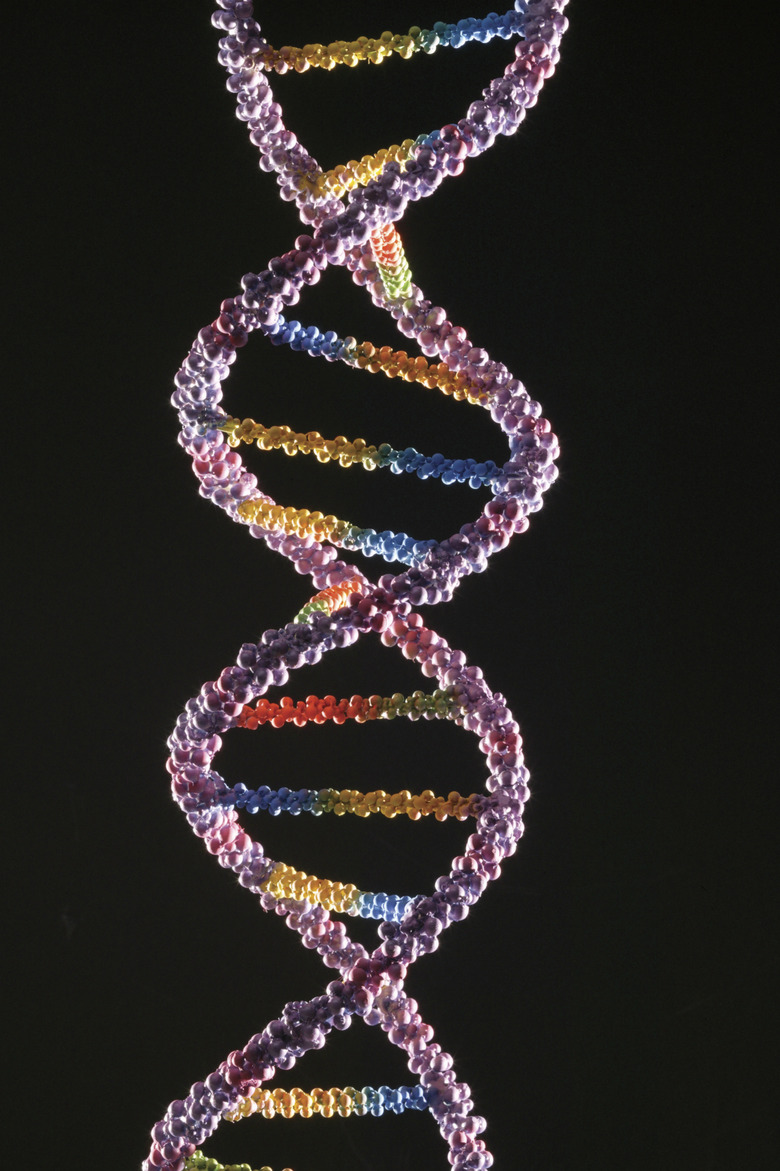What Are The Chemical Names Of The Four Macromolecules?
Macro — the prefix is derived from the Greek for "big," and macromolecules fit the description both in their size and biological importance. The four classes of macromolecules — carbohydrates, proteins, lipids and nucleic acids — are polymers, each composed of repeating smaller units joined together into larger functional molecules. These smaller units have chemical names, as do the macromolecules they form.
Carbohydrates
Carbohydrates
The most common building block of carbohydrates is the simple sugar glucose. Different configurations of glucose molecules produce the starch polymers amylose and amylopectin, as well as cellulose, the main macromolecule of which plants are made.
Proteins
Proteins
Proteins are built from different combinations of 20 amino acids, including glycine, leucine and tryptophan. Each resulting protein has a different chemical name. Examples include keratin, the protein that makes up hair, and collagen, which makes up tendons.
Lipids
Lipids
Lipid polymers, more commonly known as fats, are made of fatty acids joined together by glycerol. As this glycerol joins three fatty acid "chains," the resulting lipid is called a triglyceride.
Nucleic Acids
Nucleic Acids
DNA, or deoxyribonucleic acid, may be the best known macromolecule. RNA, or ribonucleic acid, is another member of this class. Both types are made of nucleotide subunits, each of which contains a phosphate group, a monosaccharide, and a base such as adenine or thymine.
Cite This Article
MLA
Walton, Daniel. "What Are The Chemical Names Of The Four Macromolecules?" sciencing.com, https://www.sciencing.com/chemical-names-four-macromolecules-12166/. 24 April 2017.
APA
Walton, Daniel. (2017, April 24). What Are The Chemical Names Of The Four Macromolecules?. sciencing.com. Retrieved from https://www.sciencing.com/chemical-names-four-macromolecules-12166/
Chicago
Walton, Daniel. What Are The Chemical Names Of The Four Macromolecules? last modified August 30, 2022. https://www.sciencing.com/chemical-names-four-macromolecules-12166/
